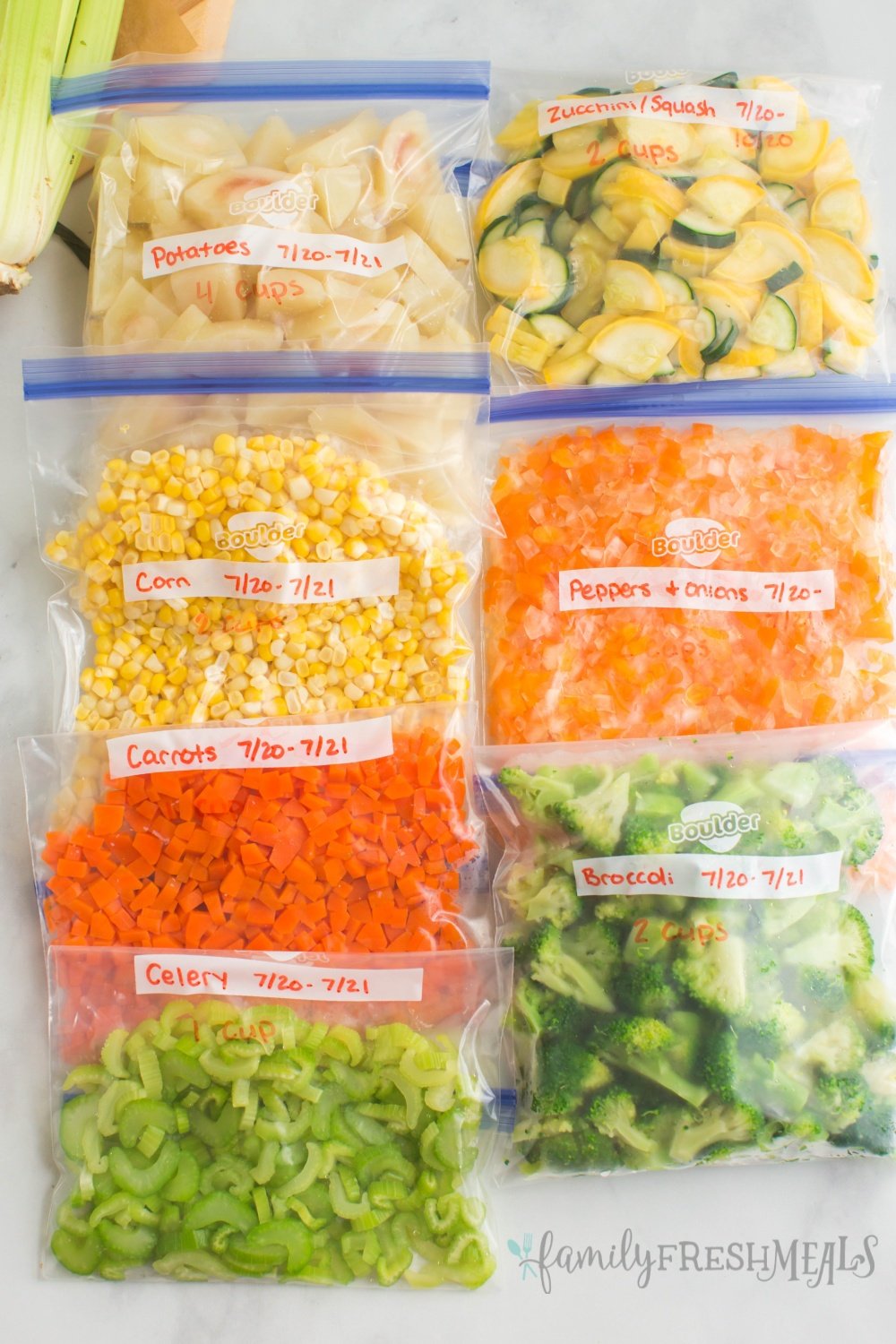Introduction
Freezing garden vegetables is a smart way to preserve the fresh flavors and nutrients of your homegrown produce. Whether you have an abundant harvest or want to enjoy seasonal vegetables year-round, freezing can save money and reduce waste. This guide will cover expert techniques to prepare, freeze, and store vegetables for optimal quality.
By understanding the right methods and timing, you can maintain the texture, taste, and nutritional value of your garden vegetables. We’ll explore blanching, freezing tips, and storage best practices to help you maximize your garden’s bounty.
Why Freeze Garden Vegetables?
Freezing garden vegetables locks in freshness and nutrients, extending their shelf life for months. Unlike refrigeration, freezing slows down enzyme activity that causes spoilage. This means you can enjoy your vegetables well beyond their typical harvest season.
Key benefits include:
– Retaining vitamins and minerals, especially vitamin C and antioxidants
– Preserving flavor and texture when frozen properly
– Reducing food waste by storing surplus harvest
Experts recommend freezing as one of the best preservation methods due to minimal nutrient loss compared to canning or drying.
How to Prepare Vegetables for Freezing
1. Select Fresh, High-Quality Vegetables
Choose vegetables that are ripe but firm, free from blemishes or signs of decay. Freshness is critical to ensure good texture and flavor after freezing.
2. Wash and Trim
Rinse vegetables under cold running water to remove dirt and pesticides. Trim stems, leaves, and any inedible parts. For leafy greens, remove tough ribs.
3. Blanching: The Essential Step
Blanching stops enzyme actions that degrade vegetables during freezing. It preserves color, flavor, and texture.
Blanching methods:
– Boiling water: Immerse vegetables for 1-5 minutes depending on type
– Steam blanching: Steam vegetables for the recommended time
After blanching, immediately cool vegetables in ice water to halt cooking. Drain and dry thoroughly before freezing.
Blanching times (approximate):
– Green beans: 3 minutes
– Peas: 1.5 minutes
– Carrots: 2-3 minutes
– Broccoli: 3 minutes
Best Freezing Techniques for Garden Vegetables
Use Proper Packaging
Use airtight, freezer-safe containers or heavy-duty freezer bags. Remove as much air as possible to prevent freezer burn. Vacuum sealing is an excellent option for long-term storage.
Portion Control
Freeze vegetables in meal-sized portions to avoid thawing and refreezing. This maintains quality and reduces waste.
Label and Date
Always label packages with the vegetable name and freezing date. Most frozen vegetables maintain quality for 8-12 months.
Freeze Quickly
Spread vegetables in a single layer on a baking sheet to pre-freeze before bagging. Quick freezing prevents large ice crystals that damage texture.
Common Questions About Freezing Garden Vegetables
Can All Vegetables Be Frozen?
Most garden vegetables freeze well after blanching. Exceptions include cucumbers and lettuce, which have high water content and become mushy.
Do Frozen Vegetables Lose Nutrients?
Freezing preserves most nutrients, especially if done shortly after harvest. Blanching slightly reduces vitamin C but overall nutrient retention is high.
How to Use Frozen Vegetables?
Use frozen vegetables directly in cooked dishes like soups, stews, and stir-fries. Avoid thawing before cooking to maintain texture.
Expert Tips to Maximize Freezing Success
- Freeze vegetables at peak ripeness for best flavor
- Use a thermometer to ensure blanching water is at correct temperature
- Avoid overcrowding bags to ensure even freezing
- Keep freezer at 0°F (-18°C) or lower
Conclusion
Freezing garden vegetables is an effective way to extend your harvest’s life, preserve nutrients, and enjoy fresh flavors year-round. By selecting quality produce, blanching correctly, and using proper freezing techniques, you can maintain texture and taste while minimizing waste.
Start with small batches to master the process, then expand as you gain confidence. Your freezer can become a treasure trove of garden goodness, ready to enhance meals any time. Embrace freezing as a trusted preservation method and savor your garden’s bounty long after the growing season ends.
